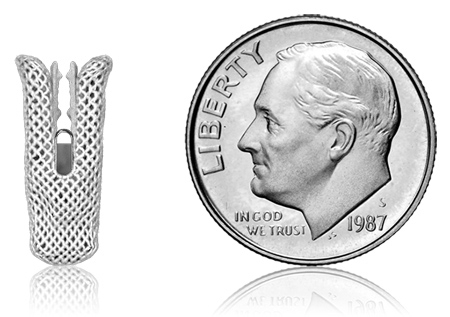Cardiogenic shock patients with severe mitral regurgitation (MR) are among the most critically ill receiving care at the University of Ottawa Heart Institute (UOHI). Most frequently occurring in patients who have suffered a severe heart attack, those with cardiogenic shock have difficulty pumping enough blood through their body to meet its needs. MR occurs when the heart’s mitral valve does not function properly, allowing blood to leak backward through the heart and forcing it to work harder to pump out the excess build-up. Often, outcomes for patients unlucky enough to develop both conditions are bleak. With mortality rates soaring near 60%, surgical intervention is not typically an option.
A multidisciplinary team of cardiologists, surgeons, and anesthesiologists at the UOHI are optimistic the results of an international, multicentre analysis published in JACC: Cardiovascular Interventions will provide some hope where little existed before.
Our analysis reveals TMVr is associated with a significant reduction in in-hospital mortality, 90-day mortality, and heart failure hospitalization.
- Dr. Benjamin Hibbert
Principal Investigator Dr. Benjamin Hibbert, an interventional cardiologist, and Lead Authors Dr. Richard Jung and Cardiac Surgeon and Mitral Valve Expert Dr. Vincent Chan sought to evaluate whether transcatheter mitral valve repair (TMVr), already an established therapy for functional mitral regurgitation in stable patients, might also represent a salvage therapy for patients with cardiogenic shock. The results suggest that by targeting the source of the regurgitation and implanting a device called a MitraClip, a “pincer clip” that prevents the backflow of blood in the heart, doctors can increase the chances of survival in severe shock patients.

“Our analysis reveals TMVr is associated with a significant reduction in in-hospital mortality, 90-day mortality, and heart failure hospitalization,” said Dr. Benjamin Hibbert.“ Increasingly this procedure is being offered to our sickest patients – and the current study supports this as a strategy – although more data is needed.”

Dr. Richard Jung said: “We wanted to show whether TMVr represents a ‘last ditch’ effort for treating patients with significant mitral valve regurgitation and cardiogenic shock. Our findings suggest there is a viable therapeutic salvage strategy available for treating a sub-set of patients who are typically deemed too sick for surgery. Our analysis offers hope for the sickest of the sick, who may now have a fighting chance to get out of the hospital and return home to their loved ones.”
Indeed, the results of the analysis are promising. Whereas historically the in-hospital mortality rate in patients with severe mitral regurgitation and cardiogenic shock approaches 60%, the study authors report that patients observed in this cohort had a reduced in-hospital mortality rate of 15.6% after a successful TMVr procedure. The population observed in this cohort includes 141 patients with cardiogenic shock and moderate to severe or severe mitral regurgitation who were deemed at prohibitive risk for surgical intervention and underwent TMVr between January 2011 and February 2019. The mean age of the patients studied is 68.9 years.
“Patients in cardiogenic shock with severe valvular disease represent a uniquely high-risk cohort with poor outcomes and limited therapies,” said Dr. Thierry Mesana, president and chief executive of the Heart Institute and a world-renowned mitral valve surgeon. “TMVr using the MitraClip system appears to be a viable therapeutic salvage strategy, demonstrating procedural safety and efficacy in mitral regurgitation reduction in patients with significant MR and cardiogenic shock.”
Mesana co-founded the UOHI’s MitraClip Program with Interventional Cardiologist Dr. Marino Labinaz and Cardiac Anesthesiologist Dr. Mark Hynes in 2012. Patients referred to this program receive the less-invasive, catheter-based treatment as an alternative to open-heart surgery. During the procedure, a MitraClip is fitted through a catheter in the femoral vein in the patient’s groin and then guided to the patient’s heart. The MitraClip is then inserted through the catheter and positioned using ultrasound technology to the valve leaflets. Once the clip is well positioned and firmly attached, the leaflets open and close together in a more typical way with each heartbeat, significantly reducing the amount of blood that leaks backward into the heart.
The study authors are organizing an international randomized trial to definitively establish MitraClip therapy as a therapeutic target in cardiogenic shock.
The paper, “Transcatheter mitral valve repair in cardiogenic shock and mitral regurgitation: A patient-level, multicenter analysis” is available online.


